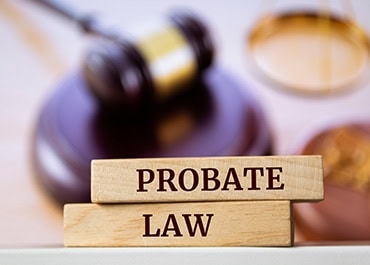Get Your Questions Answered – Call Me To Schedule Your 30 Minute Phone Consultation
(719) 985-8192

In this article, you’ll discover:
Fortunately, you don’t have to. Filing the general notice to creditors will alert all creditors to the decedent’s passing. If you file the notice at the beginning of the case, creditors have four months to claim against the estate.
There will be some creditors that don’t claim debts. Suppose you have a credit card, and the amount owed is $300. The credit card company may decide it’s not worth making a claim. You will only deal with those creditors who have made a claim against the estate when you’re dealing with unsecured debts, rather than secured debts.
A secured debt (such as a mortgage on a home or a lien on a car) must be paid before the asset is transferred or made whole. The person buying the home can refinance and pay off that debt in full. Alternatively, if someone is taking a car and there’s still a loan against it, they may assume that loan.
However, you must ensure what the lender is willing to assume beforehand. For anything that is an asset of the estate requiring ongoing maintenance or payment of bills, you must continue to handle these expenses yourself. For example, if the asset is a house, you will have to pay property taxes, utility bills, and mortgage payments.
If it’s an unsecured debt, typically, you wait and see if a creditor will make a claim. Now, if they make a claim and there’s no question of its validity, the personal representative will usually pay that. If you have questions about whether it’s a valid claim, you can deny the claim, and it’s up to the creditor to file a motion in court to approve their claim.
The most important debts to pay are those that secure assets, such as a mortgage payment or a car payment. The rest of the debts (such as credit card debts) can be left until the creditors’ time has run and their claims have been filed.
If there are not enough assets to cover all the claims and you’ve determined they are valid, they will be paid pro rata. For example, if ten people file claims ranging from $10,000 to $1,000, you will rank those claims by the percentage of the available assets, and then they will be paid that percentage.
Yes. You should try to negotiate as, with many of these debts, the creditors are not expecting to get full payment. An experienced estate planning attorney can help you navigate this process and negotiate for lower debts with creditors. It’s a worthwhile process that can save you quite a bit of money overall.
If you were on the loan document itself or a co-borrower, you’d have to pay that debt. If it’s just the decedent’s debt, and there aren’t enough assets to pay it, it doesn’t get paid. There’s nobody the creditors can come against.
Some creditors, particularly collection companies, say you must pay, or they’ll come after you. If that ever happens, report them to your attorney general, as their threat probably violates the Fair Debt Collection Practices Act.
If the creditor makes a claim and it’s not denied, they can come against the assets of the estate that have already been distributed. You will have to turn that asset back into the estate to satisfy the claim, or if you want to keep the asset, you will have to pay the claim yourself.
Specific statutory claims will take priority over paying debts. One of them is the marital share. If you were the spouse of the person who passed away and they haven’t provided for you adequately in the will, you can collect against the will and collect the statutory share of a spouse.
The same will be true on a family allowance. If the decedent was supporting a family, an amount can be paid for the family if they’re not cared for in the final terms of the will. In addition to the spousal share, there is also a spousal allowance if the spouse relied on the decedent for support. So, all those statutory claims must be paid before the creditors’ claims are paid.
The easiest way to accomplish this is to not have your assets go through the estate at all. Suppose you have a significant investment with Fidelity and named beneficiaries on that debt. It will not go into the estate but will pass outside of the estate and go directly to the beneficiaries.
This is provided there is enough remaining in the estate a house that needs to be sold, for instance that would be liable for those claims. If the decedent attempted to defraud creditors, those claims can be brought back to pay the creditors.
Typically, if those claims are transferred outside the estate, getting that money back into the estate is more complicated if creditors wish to access it for the repayment of debt. In most cases, creditors will be satisfied if they are paid a portion of what they would otherwise get by simply claiming against the estate.
For more information on How To Deal With Debt In Probate: An Overview For Executors, an initial consultation is your next best step. Get the information and legal answers you are seeking by calling (719) 985-8192 today.